Request a video call
Confirm Your Virtual Consultation
Dr. Vinod Narayanan | Maxillofacial Surgery Specialist Profile Overview

What is Orthognathic surgery
Orthognathic surgery is surgery performed on the bones of the jaws to change their positions. Orthognathic surgery is corrective facial surgery where deformities of the jaw exist. It may be indicated for functional, cosmetic, or health reasons. It is surgery commonly done on the jaws in conjunction with orthodontic treatment, which straightens the teeth.
Why Go For Orthognathic Surgery/ Corrective Jaw Surgery
The purpose of orthognathic surgery/ corrective jaw surgery is to correct functional and cosmetic problems that are due to underlying jaw deformities. Orthognathic surgery is often the treatment solution in cases where the bite problem is so severe that orthodontic braces alone aren’t enough to correct the problem, or where orthodontics alone would compromise your facial appearance.
One of the most rewarding aspects of orthognathic surgery is improved beauty and self-esteem.
Kinds of Deformities in Jaws
Severe bony deformities caused by jaw mismatch in size and position may cause serious problems. For example, extremely small lower jaw may result in snoring and sleep apnea, which can consequently cause many health problems. In cases of short upper lip and vertical excess of the upper jaw, the lips are usually open as they fail to close without efforts due to increased lower third of the face. Consequently, it may stimulate undesirable mouth breathing which further worsens occlusion. Frequently malocclusion can have strong negative effect on speech function and often it can be accompanied by jaw joint pain.
And last but not least, occlusion and the position of jaws define the height of the lower third of the face to the greatest extent, hence the aesthetics of the facial profile as well. Convex ‘bird face’ or concave ‘mature face’ profiles are considered anaesthetic, therefore severe anomalies can cause social problems if left untreated.
When Do You Need Orthognathic Surgery?
Facial imbalances are often present and sometimes recognized by the untrained eye. People with large jaws, or chins, or small jaws or chins, teeth which don't fit together, eyeballs which appear bulging, and flat cheekbones are examples of facial characteristics that may be improved by orthognathic surgery.
Sometimes the differences are so subtle that only a trained specialist can recognize them. The orthodontist or oral maxillofacial surgeon recognizes the need for surgical repositioning of segments of facial bones or teeth. An evaluation by such a specialist will often easily determine if you are a candidate for this type of surgery.
Surgery usually lasts three to four hours during which time you will be completely asleep. While you are asleep, incisions are made on the inside of your mouth to expose the bones to be cut. The procedures are then carried out. Screws are used to hold the bones and the teeth are not usually wired together at all. The incisions are closed with sutures, and you are ready for recovery.
How long does recovery last?
The length of recovery in the hospital may vary from one to three days following surgery. During the week following surgery, activities should be limited. All strenuous activities and heavy exercise should be avoided the first month after surgery. Swelling is common, and a brief period of facial discoloration is possible.
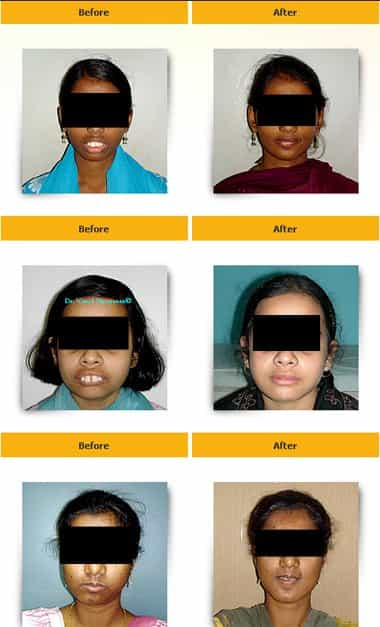 What if I don't have the surgery?
What if I don't have the surgery?
Facial and dental imbalances have influences on function, health, and appearance. Not treating a functional problem may prevent you from being able to bite and chew your food, close your lips together, and to speak clearly. The health of the teeth, gums and particularly the jaw joint (TMJ) may be in jeopardy if surgery is not done. While not often a primary reason for orthognathic surgery, the appearance of your face may be made to look more balanced or normal. One's facial appearance can influence one's quality of life in many ways.
- Making biting and chewing possible or easier. Correcting jaws that don't align properly is the most common reason for this surgery.
- Correcting facial imbalance, thus improving the appearance of patients who have deficient chins, protruding underbites and overbites, or cleft palate
- Improving "gummy" smiles, where lips pull upward, showing large areas of the gums, and "toothless" smiles, where the lips cover all the teeth
- Reducing the risk jaw joint (TMJ) and other jaw diseases.
- Repairing facial injuries from trauma
- Improving sleep. When other treatments haven't helped, jaw surgery can provide relief for patients with severe snoring.
- Surgery can be carried out on the upper jaw, lower jaw and chin under general anaesthesia
We Provide You The Best Treatments !
We provide quality Maxillofacial (Mouth, jaw and face surgery) surgery services. The surgeries include complete spectrum of orthognathic surgery and corrective jaw surgery.
Dr. Vinod Narayanan is specialist in orthognathic and corrective jaw surgery in India. In his clinic, dr. Vinod personally answers your questions and can jointly discuss and define your expectations. We provide detailed and comprehensive consultation with personal attention to each patient in a high quality environment. We provide transparency of costs and benefits, honesty and comprehensive advice to help for your "perfect" exterior to fulfill the wish.
Treatments Offered:
- Cosmetic Jaw Surgery (Orthognathic Surgery)
- Jaw Reconstructive Surgery
- Facial and jaw fracture surgery
- Oral surgical oncology
- Jaw deformity surgery
- Jaw surgery for sleep disorders
About Dr Vinod Narayanan
Professional qualifications : BDS, MDS, FDSRCS(Eng), MOMSRCPS(Glasg)
Specialisation : Oral & Maxillofacial Surgery
Academic distinctions:
- Indian Academy of Oral Medicine – Merit certificate for having stood first in Oral Medicine in the Final BDS examination of the University of Madras.
- Capt. Gangadhara Memorial Merit certificate for having stood first in Orthodontics in the Final BDS examination of the University of Madras.
- Indian Society of Periodontology – Merit certificate for having stood first in the Final BDS examination of the University of Madras.
Other achievements
- Has over 30 publications in national and international journals
- AO – CMF Faculty – Since Nov. 2008
Dr. Vinod Narayanan | Maxillofacial Surgery Specialist, Chennai, India Profile Details

We Provide You The Best Treatments !
Prof Vinod Narayanan
Speciality: Maxillofacial Surgery (Mouth, jaw and face surgery)
Qualifications:
* MDS, FDSRCS(England), MOMSRCPS(Glasgow)
Consultant Maxillofacial Surgeon:
- Apollo Hospitals Chennai
- Sundaram Medical Foundation, Chennai
- Vellammal Hospitals, Chennai
Work Experience:
- Registrar Department of Maxillofacial Surgery, Bradford Hospitals, England -April 1993 to October1996
- Clinical Assistant, Department of Maxillofacial Surgery, Glan Clwyd Hospitals, North
- Wales, UK, Dec1992 to March 1993
- Professor, Maxillofacial Surgery, Saveetha University 1996 to date
- Senior Consultant Apollo Hospitals, Chennai. 2000 to date
Examiner - Royal College of Physicians and Surgeons of Glasgow since 2002
Other achievements
Has over 35 publications in national and international journals
AO - CMF National and International Faculty - Since Nov. 2008
Areas of Specialisation and treatment:
- Cosmetic Jaw Surgery (Orthognathic Surgery)
- Jaw Reconstructive Surgery
- Facial and jaw fracture surgery
- Oral tumour and cancer surgery
- Jaw deformity surgery
- Jaw surgery for sleep disorders
- Dental implants
- Jaw joint surgery
Chennai Jaw and Face Surgery Service, Anna Nagar, Chennai.
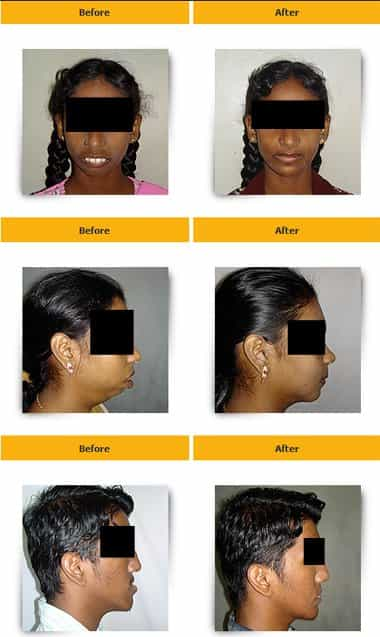 Prof Vinod Narayanan specializes in Jaw and Face Surgery. The team at Apollo and at the other hospitals are surgeons who are board-certified and certified by Royal College of Physicians and Surgeons of Glasgow.
Prof Vinod Narayanan specializes in Jaw and Face Surgery. The team at Apollo and at the other hospitals are surgeons who are board-certified and certified by Royal College of Physicians and Surgeons of Glasgow.
Prof Vinod Narayanan and his surgery team are affiliated with JCI (Joint Commission International) and ISO-certified hospitals in Chennai and Kochi.
Staff at Chennai Jaw and Face Surgery Service provides round-the-clock care for patients undergoing treatments with experts and specialists. Staff and doctors at the facilities strive to promote a pain-free environment and comfortable recovery experience.
Taking advantage of the Internet, Chennai Jaw and face Surgery has put together a variety of packages for patients (and a companion!) to travel to beautiful Chennai from anywhere around the globe. Medical and support staff are dedicated to offering the best in care, courtesy and friendship to patients arriving for treatment, from the moment they step off the airplane until they're escorted to their hotels and then to their procedures. Staff at the facility looks after their patients during their entire stay, and offer the best in sightseeing and culinary delights.
Accommodation
Chennai offers accommodation facilites to suit all individual requirements. Delux and private rooms are centrally air conditioned with attached toilets, refrigerators, satellite TV, telephone facilities and an attendant's bed. Semi-private rooms (2-3 beds) are air conditioned and share a common bath/toilet
ial (Mouth, jaw and face surgery) surgery services. The surgeries include complete spectrum of orthognathic surgery and corrective jaw surgery.
Dr. Vinod Narayanan is specialist in orthognathic and corrective jaw surgery in India. In his clinic, dr. Vinod personally answers your questions and can jointly discuss and define your expectations. We provide detailed and comprehensive consultation with personal attention to each patient in a high quality environment. We provide transparency of costs and benefits, honesty and comprehensive advice to help for your "perfect" exterior to fulfill the wish.

Dr. Vinod Narayanan | Maxillofacial Surgery Specialist Treatments Offered

1. Cosmetic Jaw Surgery (Orthognathic Surgery)
The purpose of orthognathic surgery/ corrective jaw surgery is to correct functional and cosmetic problems that are due to underlying jaw deformities. Orthognathic surgery is often the treatment solution in cases where the bite problem is so severe that orthodontic braces alone aren’t enough to correct the problem, or where orthodontics alone would compromise your facial appearance. One of the most rewarding aspects of orthognathic surgery is improved beauty and self-esteem.
Severe bony deformities caused by jaw mismatch in size and position may cause serious problems. For example, extremely small lower jaw may result in snoring and sleep apnea, which can consequently cause many health problems. In cases of short upper lip and vertical excess of the upper jaw, the lips are usually open as they fail to close without efforts due to increased lower third of the face. Consequently, it may stimulate undesirable mouth breathing which further worsens occlusion. Frequently malocclusion can have strong negative effect on speech function and often it can be accompanied by jaw joint pain.
And last but not least, occlusion and the position of jaws define the height of the lower third of the face to the greatest extent, hence the aesthetics of the facial profile as well. Convex ‘bird face’ or concave ‘mature face’ profiles are considered anaesthetic, therefore severe anomalies can cause social problems if left untreated.
Scientists have been on the way in seeking an answer to this question for years trying to find which part of the face is playing the greatest role in the attractiveness of the face, and surgeons – trying to “attack” those parts, thus hoping to make the face more attractive by changing particular features. Do we look at the eyes, at the smile, the symmetry of the face or at the combination of several features like nose, cheeks, eyebrows or eyes when assessing facial attractiveness?
Orthognathic surgery is surgery performed on the bones of the jaws to change their positions. Orthognathic surgery is corrective facial surgery where deformities of the jaw exist. It may be indicated for functional, cosmetic, or health reasons. It is surgery commonly done on the jaws in conjunction with orthodontic treatment, which straightens the teeth.
How do I know if I need orthognathic surgery?
Facial imbalances are often present and sometimes recognized by the untrained eye. People with large jaws, or chins, or small jaws or chins, teeth which don't fit together, eyeballs which appear bulging, and flat cheekbones are examples of facial characteristics that may be improved by orthognathic surgery. Sometimes the differences are so subtle that only a trained specialist can recognize them. The orthodontist or oral maxillofacial surgeon recognizes the need for surgical repositioning of segments of facial bones or teeth. An evaluation by such a specialist will often easily determine if you are a candidate for this type of surgery.
Surgery usually lasts three to four hours during which time you will be completely asleep. While you are asleep, incisions are made on the inside of your mouth to expose the bones to be cut. The procedures are then carried out. Screws are used to hold the bones and the teeth are not usually wired together at all. The incisions are closed with sutures, and you are ready for recovery.
How long does recovery last?
The length of recovery in the hospital may vary from one to three days following surgery. During the week following surgery, activities should be limited. All strenuous activities and heavy exercise should be avoided the first month after surgery. Swelling is common, and a brief period of facial discoloration is possible.
What if I don't have the surgery?
Facial and dental imbalances have influences on function, health, and appearance. Not treating a functional problem may prevent you from being able to bite and chew your food, close your lips together, and to speak clearly. The health of the teeth, gums and particularly the jaw joint (TMJ) may be in jeopardy if surgery is not done. While not often a primary reason for orthognathic surgery, the appearance of your face may be made to look more balanced or normal. One's facial appearance can influence one's quality of life in many ways.
- Making biting and chewing possible or easier. Correcting jaws that don't align properly is the most common reason for this surgery.
- Correcting facial imbalance, thus improving the appearance of patients who have deficient chins, protruding underbites and overbites, or cleft palate
- Improving "gummy" smiles, where lips pull upward, showing large areas of the gums, and "toothless" smiles, where the lips cover all the teeth
- Reducing the risk jaw joint (TMJ) and other jaw diseases.
- Repairing facial injuries from trauma
- Improving sleep. When other treatments haven't helped, jaw surgery can provide relief for patients with severe snoring.
- Surgery can be carried out on the upper jaw, lower jaw and chin under general anaesthesia
Bones are fixed using screws or plates.
Upper Jaw Surgery
This operation involves the upper jaw (maxilla) and the movement of it in various directions. This procedure is used in the treatment of:
• Open bite
• Long-face problems
• Short-face problems
Chin surgery
This operation involves the movement of the chin, which may be moved forward, back, or upward to shorten it, or downward to lengthen it. The choice depends almost entirely on how it might affect your ability to let your lips relax together and on how it affects your facial appearance.
2. Facial Trauma :
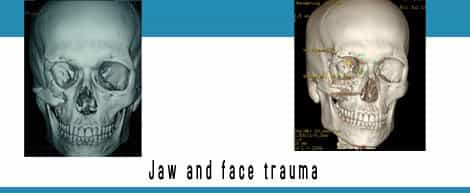
Our surgeons are trained to treat a variety of injuries to the mouth, face and jaws. We are on call to the emergency room to the various leading hospitals in Chennai to evaluate and treat facial and jaw injuries. Fractures (broken bones) can involve the lower jaw, upper jaw, cheekbones, eye socket, and combinations of these bones. Treatments for these injuries are frequently managed under general anaesthesia.
3. Pathology :
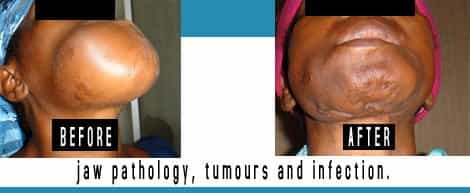
It is simply the science that deals with the nature, cause, and development of disease. The surgeons at Chennai Oral and Maxillofacial Surgery Service are highly trained in the diagnosis and treatment of pathology or diseases of the oral cavity and the maxillofacial region.It is critical that they have this expertise in both oral and maxillofacial areas as the most common conditions and diseases involve the teeth and associated structures. They may range from infections and traumatic lesions, to benign and malignant tumors. Frequently, systemic diseases have oral signs and symptoms and in some cases the disease manifests itself first in the oral cavity.
A lesion or growth that is present for more than ten to fourteen days is generally biopsied. A biopsy is a surgical procedure in which a section or the entire growth is removed depending on the size, location and nature of the growth. Growths in the oral cavity are typically benign in nature. A malignant lesion, or oral cancer is less common in the general population. However, due to the innocuous appearance of some oral cancer all suspicious lesions should be biopsied.
Most biopsies are performed in the clinic under local anesthetic. For those patients who prefer, a light sedation or general anesthesia can be administered. Following removal of the lesion, the biopsied specimen is sent to an oral pathologist for a final diagnosis. The diagnosis would dictate the need for possible further treatment.
Further treatment would include simple excision of the disease alone to removal of the affected parts of jaw and face followed by reconstruction with a microvascular free flap.
4. The TMJ (temporomandibular joint) or jaw joint :
-or-jaw-joint.jpg)
It is the small joint located directly in front of the ear. This joint allows for movement of the lower jaw during opening and closing. TMJ disorders, dysfunction, and TMD are terms that describe a malfunction or problem related to this joint and its associated components, mainly its muscles and ligaments. Ankylosis is fusion of the joint due to injuries or infection usually occurring in childhood leading to inability to open the mouth with distorted face growth(crooked face). Treatment is surgery in a multistage manner to open the mouth and cosmetically reconstruct the jaws and face.
5. A dental implant
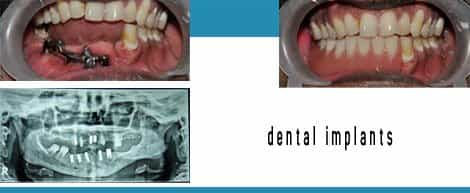
It is a "root" device, usually made of titanium, used in dentistry to support restorations that resemble a tooth or group of teeth to replace missing teeth.
Virtually all dental implants placed today are root-form endosseous implants, i.e., they appear similar to an actual tooth root (and thus possess a "root-form") and are placed within the bone (endo- being the Greek prefix for "in" and osseous referring to "bone"). The bone of the jaw accepts and osseointegrates with the titanium post. Osseointegration refers to the fusion of the implant surface with the surrounding bone. Dental implants will fuse with bone, however they lack the periodontal ligament, so they will feel slightly different than natural teeth during chewing.
Dental implants can be used to support a number of dental prostheses, including crowns, implant-supported bridges or dentures.[1] They can also be used as anchorage for orthodontic tooth movement. The use of dental implants permits undirectional tooth movement without reciprocal action. They are the only way to provide fixed teeth for jaws which have been reconstructed with bone grafts or free flaps.
Accommodation
Chennai offers accommodation facilites to suit all individual requirements. Delux and private rooms are centrally air conditioned with attached toilets, refrigerators, satellite TV, telephone facilities and an attendant's bed. Semi-private rooms (2-3 beds) are air conditioned and share a common bath/toilet.

Dr. Vinod Narayanan | Maxillofacial Surgery Specialist Certificates, Accreditations, Qualifications Treatments Offered

Speciality: Maxillofacial Surgery (Mouth, jaw and face surgery)
Qualifications:
- MDS, FDSRCS(England), MOMSRCPS(Glasgow)
Consultant Maxillofacial Surgeon:
- Apollo Hospitals Chennai
- Sundaram Medical Foundation, Chennai
- Vellammal Hospitals, Chennai
Work Experience:
- Registrar Department of Maxillofacial Surgery, Bradford Hospitals, England -April 1993 to October1996
- Clinical Assistant, Department of Maxillofacial Surgery, Glan Clwyd Hospitals, North Wales, UK, Dec1992 to March 1993
- Professor, Maxillofacial Surgery, Saveetha University 1996 to date
- Senior Consultant Apollo Hospitals, Chennai. 2000 to date
- Examiner - Royal College of Physicians and Surgeons of Glasgow since 2002
Other achievements
Has over 35 publications in national and international journals
AO – CMF National and International Faculty – Since Nov. 2008
Areas of Specialisation and treatment:
- Cosmetic Jaw Surgery (Orthognathic Surgery)
- Jaw Reconstructive Surgery
- Facial and jaw fracture surgery
- Oral tumour and cancer surgery
- Jaw deformity surgery
- Jaw surgery for sleep disorders
- Dental implants
- Jaw joint surgery

Dr. Vinod Narayanan | Maxillofacial Surgery Specialist Testimonials
Dr. Vinod Narayanan | Maxillofacial Surgery Specialist Awards & Recognitions
Chennai, India Destination Overview
Location

About Medical Center
- Speciality: Dentistry
- Location: Block V – 55, AnnaNagar, Chennai 600 040, INDIA , Chennai 600100, India
- Overview: Committed to excellence in Dental Cosmetics.

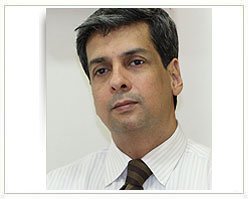
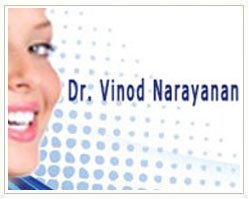
















.png)
.png)
.png)
.png)
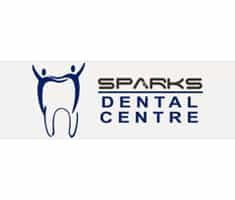

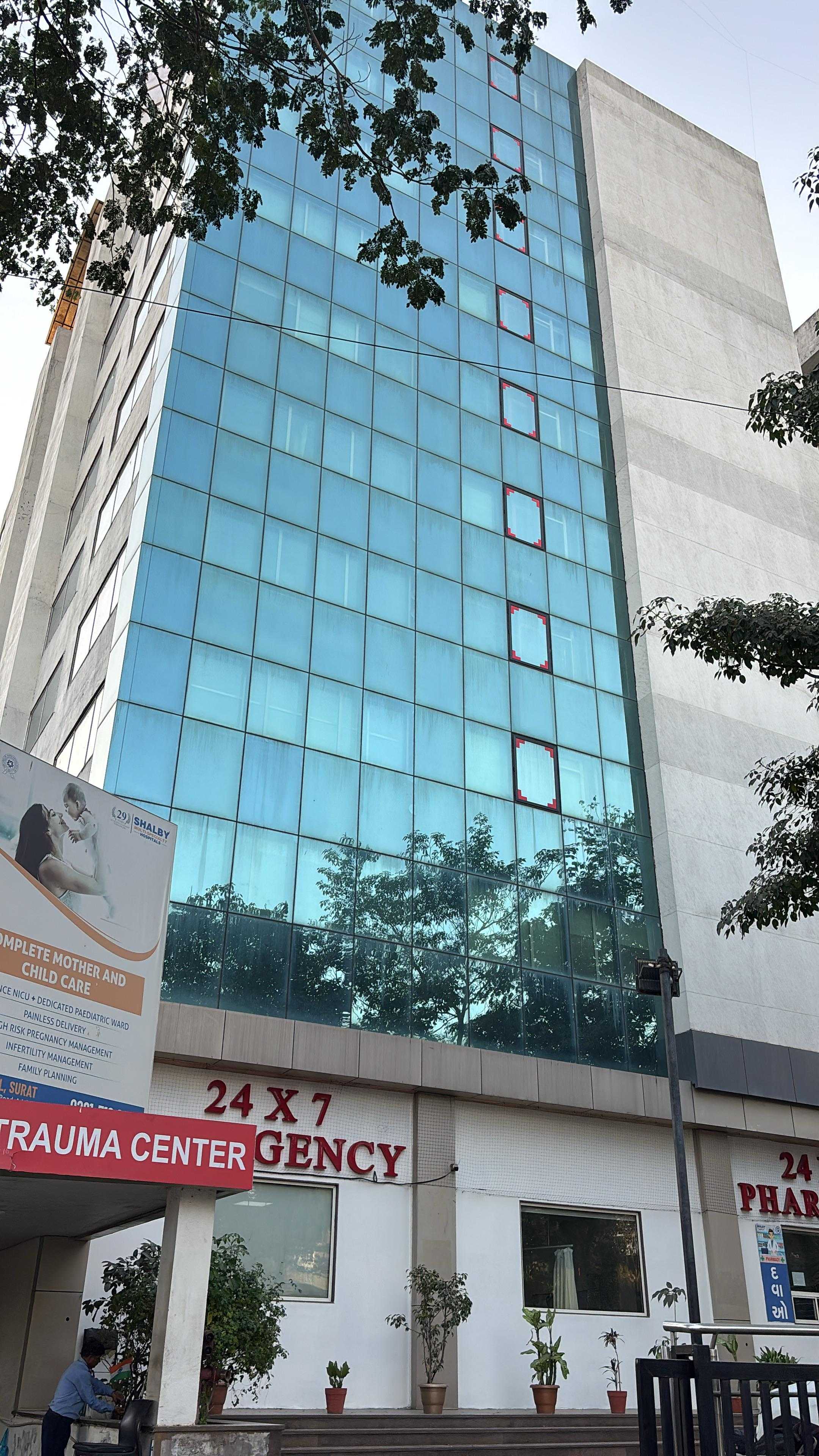
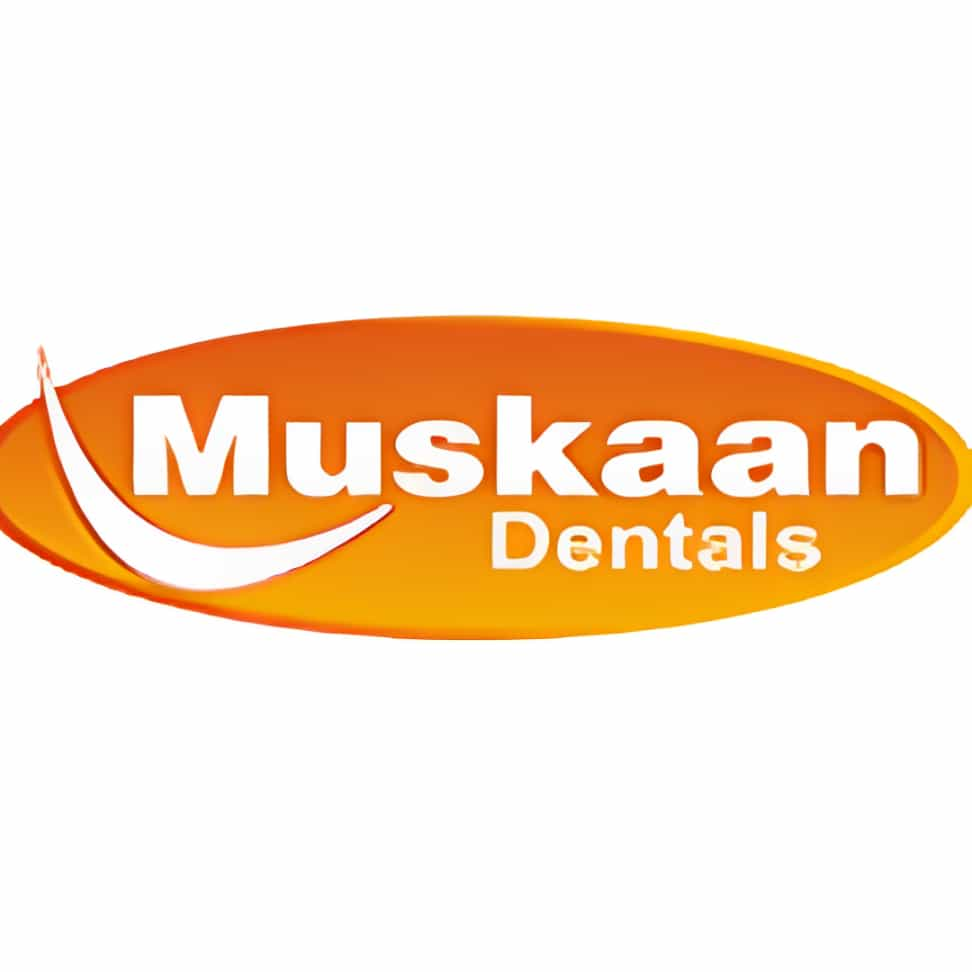
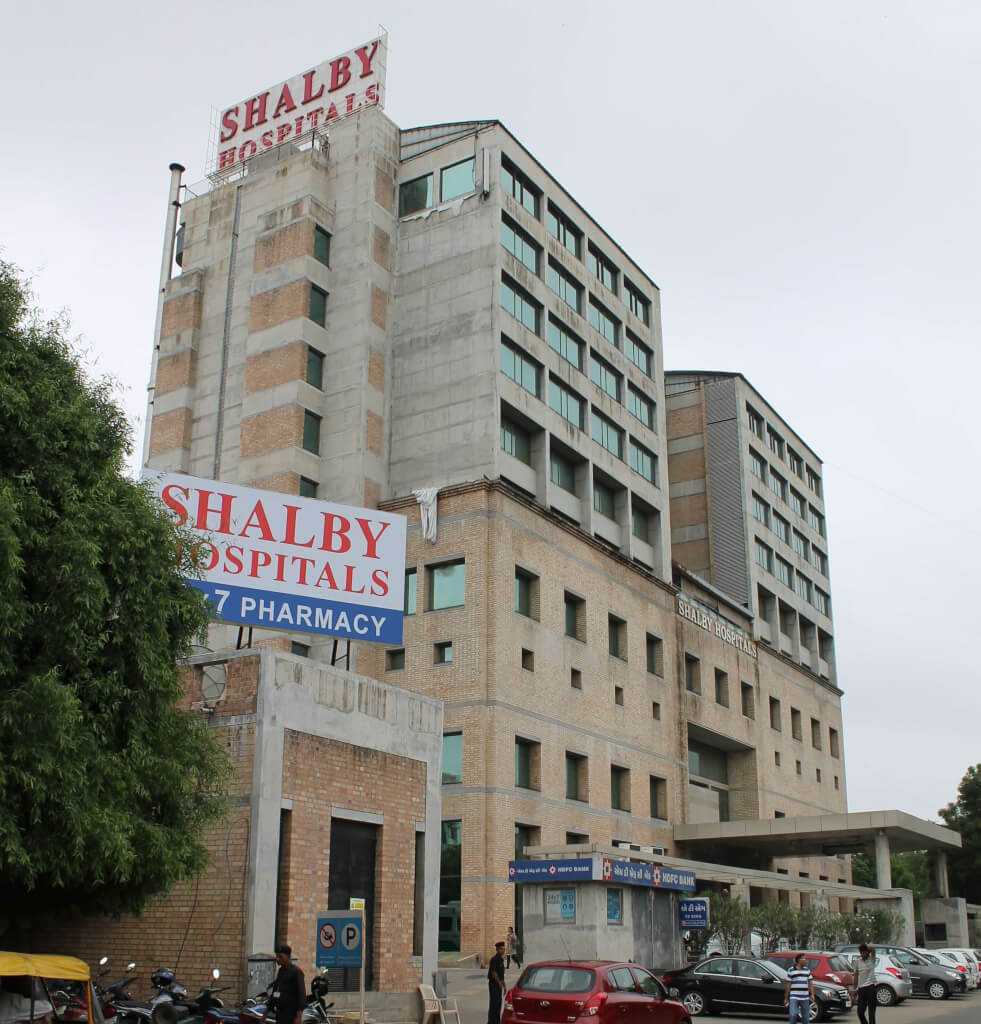

Share this listing